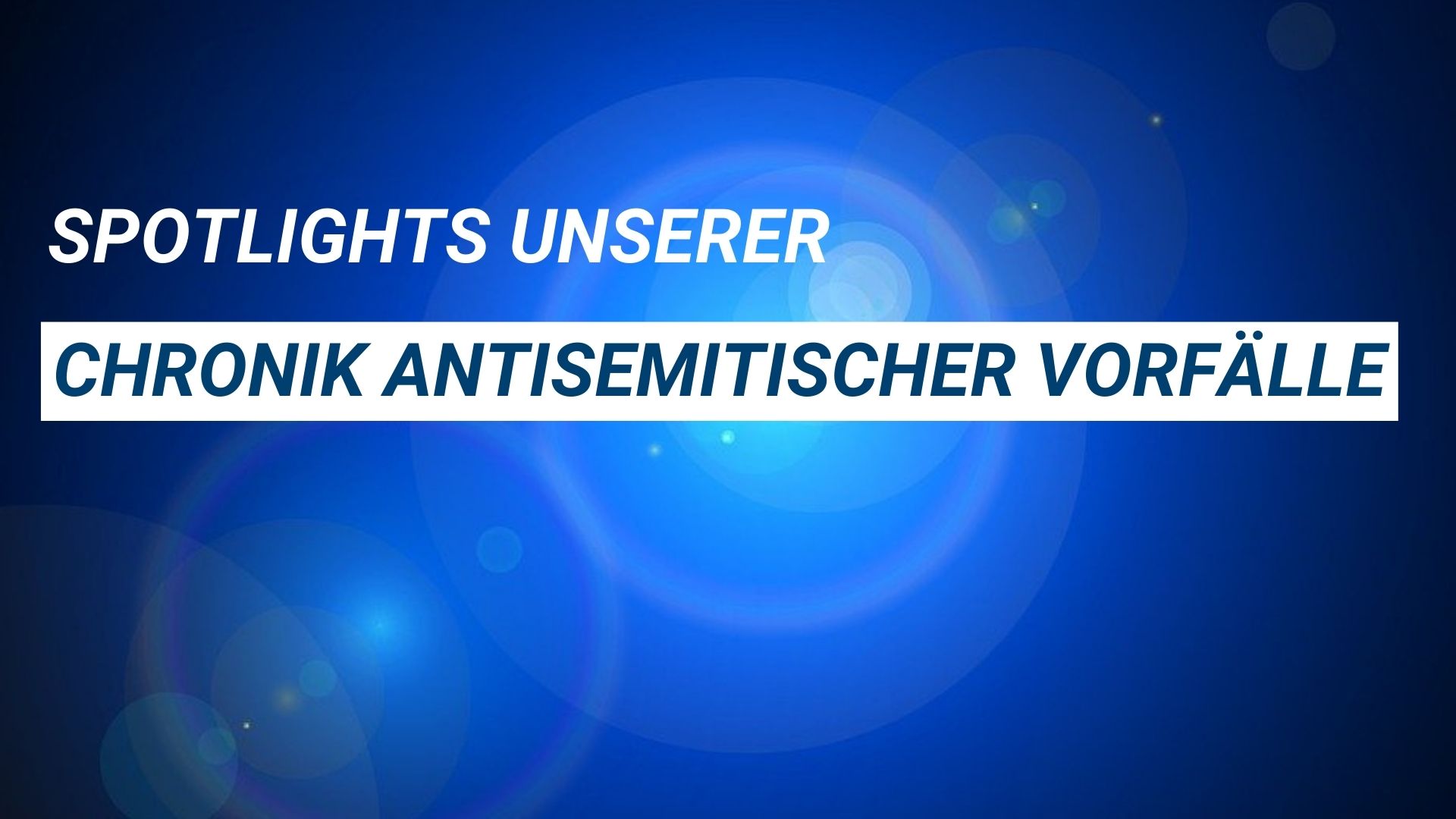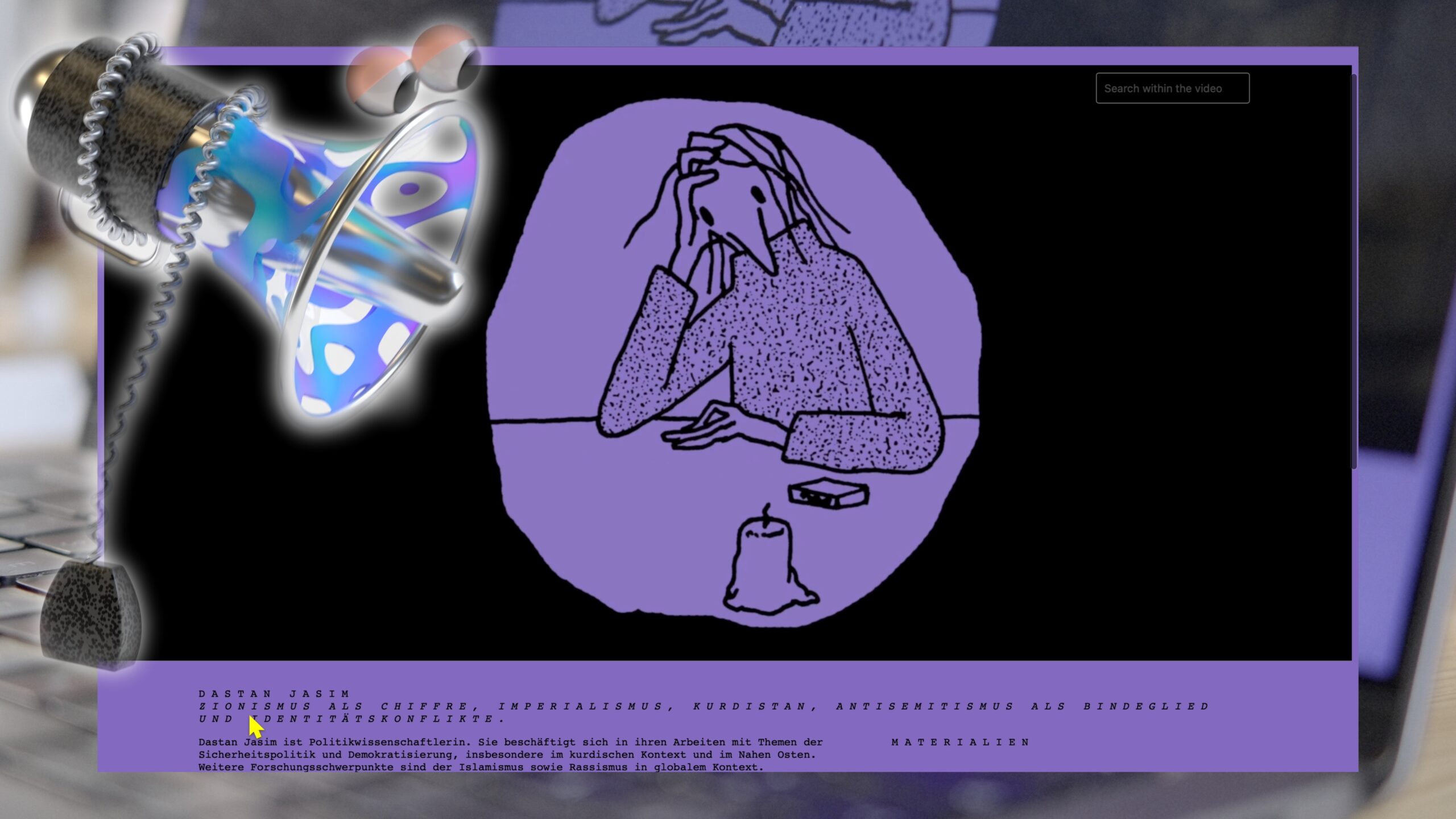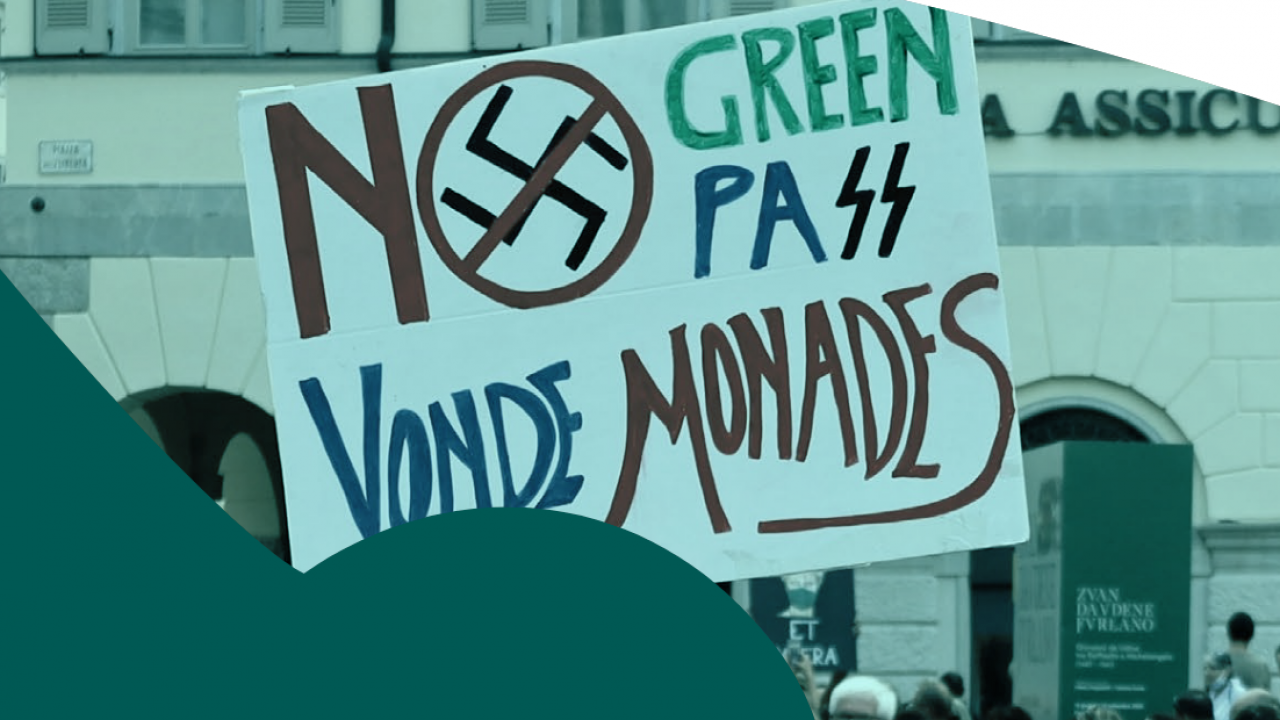On the occasion of the United Nations’ 80th anniversary, the Amadeu Antonio Foundation casts a critical eye on the dark sides of an institution whose original mission of peace is now increasingly being called into question. The new civil society report “Antisemitism Situation Report #14” examines how UN institutions and their representatives have, since October 7, 2023, contributed to the relativization of terror – and what consequences this has for the debate on Israel and antisemitism in Germany.
The conclusion is sobering: Rather than being a place for peace and human rights, the UN has, following the Hamas terror attack on Israel on October 7, 2023, often become a stage for distortion, relativization, and double standards. UNRWA employees are alleged to have been directly involved in the massacre. Other UN organizations responded far too late to the sexualized violence that was documented on that day. Israeli hostages report having been held in UN buildings. Meanwhile, the General Assembly continues to shy away from calling Hamas what it is: a terrorist organization.
What does this have to do with Germany? A great deal. UN resolutions and statements by high-ranking UN representatives are repeatedly used by antisemitic actors in Germany as supposedly neutral evidence for anti-Israel narratives – across all political milieus. In demonstrations, on social media, and in political discourse, the United Nations are being instrumentalized to legitimize antisemitism under the guise of criticism of Israel.
The Amadeu Antonio Foundation has documented, analyzed, and evaluated antisemitic incidents in Germany for many years. With the Antisemitism Situation Report #14, we turn our gaze to the international stage – and its impact on German society.
The Five Core Observations at a Glance:
1. Resolutions: Anti-Israel sentiment as majority opinion
The UN is a gathering of its member states – many of which are autocratically governed and hostile to democracy. In this constellation, an anti-Israel majority has shaped the United Nations’ Middle East policy for decades. After October 7, the dysfunctionality of this system became clear: instead of supporting Israel, the majority blocked resolutions that sought to condemn terrorism – or deliberately framed them in a one-sided manner.
2. Upside-down world: Trivialization of Hamas, delegitimization of Israel
While Israel is condemned for defending itself, condemnations of Hamas are lacking. UN representatives refer to “resistance” instead of calling the terror by its name. This rhetoric obscures the atrocities of October 7 and finds alarming resonance in German discourses – whether on the streets or on social media.
3. The UN as a legitimizing authority for antisemitism
Antisemitic narratives gain an appearance of moral and political legitimacy through UN statements, resolutions, and reports. Terms like “genocide” or “human rights violations” against Israel are often adopted uncritically – while, at the same time, sexualized violence by Hamas is barely acknowledged. This imbalance extends far beyond the UN and shapes German discourse as well.
4. Contribution to the destabilization of the Middle East
Instead of promoting peace, the UN – through its one-sided stance – reinforces existing lines of conflict. Especially problematic: the behavior of the UN Relief and Works Agency (UNRWA), whose teaching materials and personnel have repeatedly spread antisemitic content. The institutional practices of the UN thus contribute to the long-term destabilization of the region – and undermine the trust of many Jews in this international institution.
5. Toothless raison d’état: Germany’s double standards
Despite the often-cited raison d’état – Germany’s special responsibility toward Israel – the country’s behavior at the UN tells a different story. Since October 7, the German government has voted in favor of or abstained from several anti-Israel resolutions – and remains one of the largest donors to UNRWA. A clear and reliable stance looks different.
Antisemitism Situation Report #14 provides an in-depth analysis of the UN’s role in the context of Israel-related antisemitism – and shows how international politics influence antisemitic discourse in Germany.
The full report is now available digitally.



